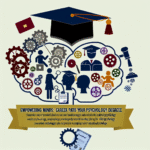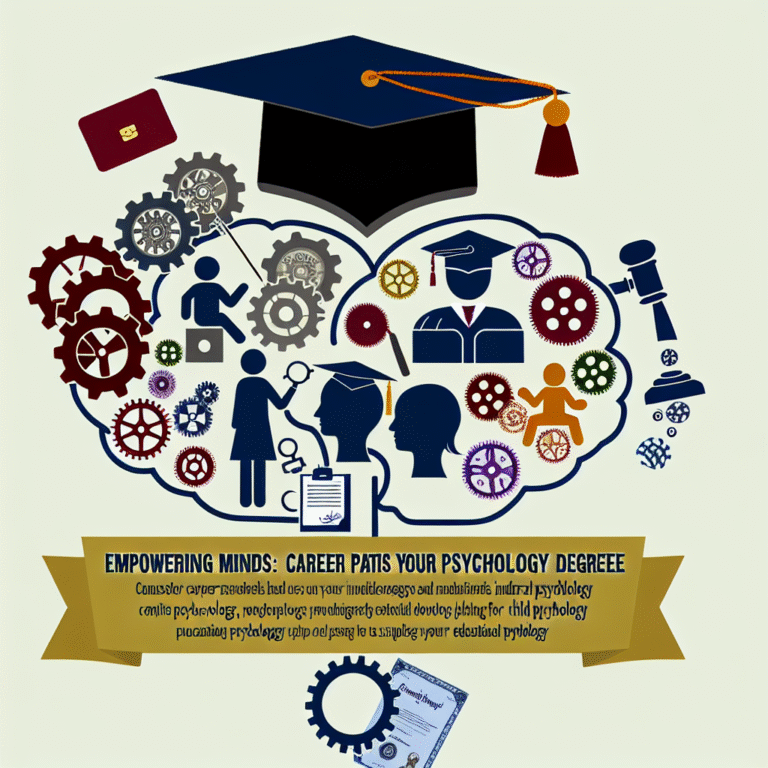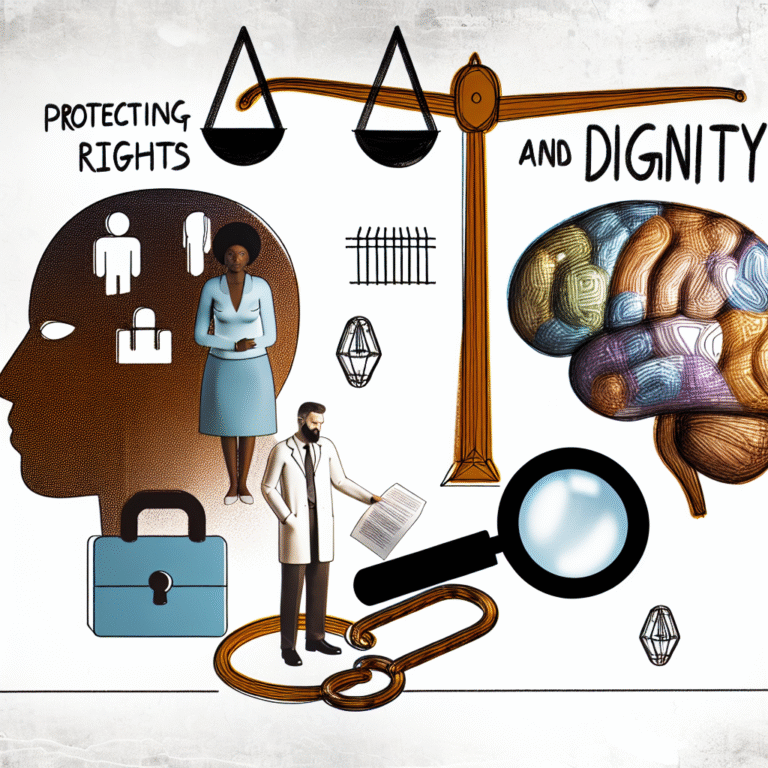
Mind Matters: Essential Study Techniques for Aspiring Psychologists
Introduction
In today’s fast-paced academic environment, aspiring psychologists face a multitude of challenges as they strive to master their field. The study of psychology is not merely an intellectual pursuit; it requires a blend of curiosity, analytical skills, and emotional intelligence. As future mental health professionals, students must equip themselves with effective study techniques that will not only help them during their academic journey but also prepare them for real-world applications. This article, "Mind Matters: Essential Study Techniques for Aspiring Psychologists," explores proven strategies to enhance learning, retention, and application of psychological concepts. By embracing these techniques, students can navigate the complexities of their coursework with confidence and creativity.
Understanding the Psychology of Learning
Before diving into specific study techniques, it’s essential to understand how the human brain processes information. The study of cognitive psychology reveals that our brains encode, store, and retrieve information through various mechanisms. As aspiring psychologists, recognizing these foundational principles can help you optimize your study sessions.
Case Study: The Testing Effect
Consider a study by Roediger and Butler (2011) that investigated the "testing effect," which suggests that actively recalling information boosts retention more effectively than passive study methods. The researchers conducted experiments demonstrating that students who engaged in self-testing retained material better than those who merely reviewed their notes. This finding is crucial for aspiring psychologists as it highlights the importance of active learning strategies.
Analysis: Understanding the principles of cognitive psychology, such as the testing effect, enables students to develop study practices that enhance their retention and comprehension.
Proven Study Techniques for Aspiring Psychologists
As you embark on your journey through a psychology program, integrating effective study techniques can significantly impact your academic performance and comprehension of the material. Here are some essential strategies for your success.
1. Spaced Repetition
Spaced repetition, a technique backed by research in memory retention, involves reviewing material at increasing intervals over time. Instead of cramming, you revisit concepts repeatedly, reinforcing your memory.
Table 1: Spaced Repetition Schedule
| Interval | Material Reviewed |
|---|---|
| Day 1 | Unit 1 |
| Day 4 | Unit 1 |
| Day 10 | Unit 1 |
| Day 20 | Unit 1 |
| Day 30 | Unit 1 |
2. Active Learning
Engage with the material actively rather than passively reading or highlighting. Techniques like summarizing, creating mind maps, and teaching concepts to peers can facilitate deeper understanding.
3. Utilizing Mnemonics
Mnemonics are memory aids that help in retaining complex information. Techniques such as acronyms, visualization, and chunking can simplify the learning process.
Case Study: Application of Mnemonics in Learning
A study by Nairne et al. (2007) showed that using mnemonics improves information retention. Psychology students who employed mnemonic devices for studying the DSM-5 diagnostic criteria outperformed their peers in recall tests.
Analysis: This technique is particularly relevant for those studying complex psychological concepts, as it provides a shortcut to enhance memory.
4. Collaborative Study Groups
Studying with peers can provide diverse perspectives and insights. Collaborative learning fosters discussion and encourages students to articulate their understanding.
5. Mindfulness and Stress Management Techniques
Psychology students often deal with substantial pressure. Incorporating mindfulness practices, such as meditation or breathing exercises, can enhance focus and alleviate anxiety.
Applying Study Techniques in Real-World Scenarios
Understanding how these study techniques translate into practical applications is vital for aspiring psychologists. Let’s delve into some scenarios where these strategies can be invaluable.
Case Study 1: Managing Clinical Psychology Internships
During clinical psychology internships, students are expected to apply theoretical knowledge to practical situations. By utilizing active learning strategies, such as role-playing with peers or self-reflection on client interactions, interns can enhance their therapeutic skills.
Analysis: Engaging with real-life scenarios through collaborative techniques solidifies theoretical knowledge and improves hands-on capabilities.
Case Study 2: Preparing for Licensure Exams
Licensure exams, such as the Examination for Professional Practice in Psychology (EPPP), require extensive preparation. Implementing spaced repetition and practice testing can reduce anxiety and enhance retention, leading to better performance.
Analysis: These techniques are not only essential for mastering content but also for building the confidence needed for high-stakes assessments.
Technology-Enhanced Study Techniques
Modern students have access to a variety of technological tools that can enhance their learning experiences. Here are some effective ways to leverage technology:
1. Application Tools for Spaced Repetition and Testing
Platforms like Anki and Quizlet utilize spaced repetition algorithms to help students retain information effectively. These tools allow you to create flashcards tailored to your courses, ensuring you review material systematically.
2. Interactive Learning Platforms
Engaging with platforms like Coursera or Khan Academy offers interactive courses that supplement classroom learning. These resources can provide additional insights and diverse perspectives on psychological concepts.
3. Digital Collaboration Tools
Utilize digital platforms like Google Docs and Slack for collaborative study sessions. They provide a space where students can share resources, discuss concepts, and support each other’s learning processes.
Creating an Effective Study Environment
The environment in which you study can significantly influence your productivity and focus. Here are guidelines to craft an optimal study setting:
1. Declutter Your Space
A tidy workspace boosts concentration. Ensure that your study area is free from distractions, and keep only essential resources nearby.
2. Ensure Adequate Lighting
Good lighting can reduce eye strain and enhance focus. Natural light is ideal, but if it’s not available, ensure your study area has ample artificial light.
3. Personalize Your Workspace
Consider personalizing your study area with motivational quotes or plants to create an inviting atmosphere conducive to learning.
Conclusion
As aspiring psychologists, embracing effective study techniques is essential for success in your academic and professional pursuits. The methods outlined in "Mind Matters: Essential Study Techniques for Aspiring Psychologists" reflect a balance between cognitive science principles and practical applications. By incorporating strategies like spaced repetition, active learning, and collaborative study, you can enhance your understanding and retention of psychological concepts. Additionally, leveraging technology and creating an optimized study environment will further propel your learning journey.
Remember, the road to becoming a psychologist may be challenging, but with the right techniques and a growth mindset, you can navigate it successfully. Emphasize the importance of self-care and stress management, as your well-being will ultimately contribute to your effectiveness as a future mental health professional.
FAQs
1. What are some quick tips for effective studying in psychology?
- Use active learning techniques like summarizing and teaching.
- Incorporate spaced repetition into your study schedule.
- Join study groups to enhance collaborative learning.
2. How can I manage stress while studying for my psychology exams?
Engage in mindfulness practices, set a balanced study schedule, and take regular breaks to refresh your mind.
3. Are there specific apps for psychology study techniques?
Yes, tools like Anki for spaced repetition and Quizlet for creating study flashcards are highly recommended.
4. How important is group study for psychology students?
Group study is beneficial for sharing diverse perspectives and discussing complex concepts, enhancing overall comprehension.
5. What should I do if I struggle to retain information from my psychology courses?
Consider employing different learning techniques like mnemonics, visual aids, and teaching concepts to peers for better retention.
By implementing these techniques, aspiring psychologists can effectively optimize their study habits, connect theoretical knowledge with practical applications, and ensure a successful journey through their academic endeavors. Embrace these strategies, and let your passion for psychology guide you toward a fulfilling career in mental health.

















